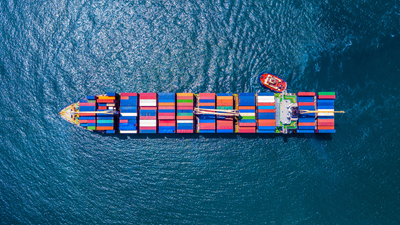Wednesday, 24 January 2024
In August 2023, the UK Government published its Border Target Operating Model which introduced new customs procedures and import controls for live animals; food of animal origin; germinal products; animal by-products; plants; plant products; fruit; vegetables; and horticulture products imported into Great Britain from Ireland and the rest of the European Union. These controls are referred to as sanitary and phytosanitary controls.
With these new procedures and controls due to take effect from 31 January 2024, the Food Safety Authority of Ireland (FSAI) is reminding food businesses of the implications for all exporters of food from Ireland to Great Britain, including those using the UK landbridge.
New UK import requirements
There are two important changes to take note of:
- Export health certificates and phytosanitary certificates will be required for medium-risk animal products, plants and plant products imported to Great Britain, in line with the UK risk categories.
Your Great Britain importer or Great Britain based agent will need to pre-notify each consignment on the UK’s food and feed sanitary and phytosanitary import system (IPAFFS). Further guidance for importers can be found at the following links:
- importing live animals and animal products to Great Britain
- importing plants and plant products from the EU to Great Britain
- importing plants and plant products from non-EU countries to Great Britain
These new UK requirements will be in addition to the existing formalities that apply when exporting goods from Ireland and the EU.
There are eight things you need to do in advance of 31 January 2024:
1. Get to Know
Familiarise yourself with Irish and UK customs and sanitary and phytosanitary requirements for exporting goods to Great Britain. More information is available on the UK websites listed in the Key Links and Resources section.
2. Register
Make sure you are fully registered to trade. You may need to register on Trade Control and Expert System (TRACES) and register for an EORI number. For more information, see gov.ie. Your Great Britain importer or agent may also need to be registered on IPAFFS and the UK Customs Declarations System.
3. Engage
It is important that you engage with your supply chain, including transport and logistics providers, to determine what adjustments will be needed to comply with the new UK import requirements. This might include things such as ferry boarding formalities, pre-notification of sanitary and phytosanitary products, obtaining export health certificates, etc.
4. Check
To check the risk category of your product(s) and to identify the correct export health certificate(s) for your product(s), please refer to the following links:
- Import risk categories for animals, animal products, plants and plant products
- UK guidance notes on the import, export and distribution of food
5. Contact
Ensure that you contact your relevant competent authority, e.g., the Department of Agriculture, Food and the Marine; the Sea-Fisheries Protection Authority; the Health Service Executive (HSE) or the relevant local authority.
6. Organise Documentation
Ensure you have full traceability information and all supporting documentation available. Ensure your systems for organising these documents align with your certifying officers’ needs.
7. Identify Staff
Choose experienced staff to interact with the IT systems, such as TRACES and IPAFFS. Decide who in your business/supply chain will be responsible for completing pre-notifications and uploading health certificate(s) onto the UK IPAFFS system.
8. Consider Logistics
Identify any issues that need to be addressed in relation to logistics arrangements, for example, in relation to couriers or availability of inspectors who may need to certify your products e.g. provision of export health certificates during out of hours times. Register with the UK goods vehicle movement service (GVMS) if you are a haulier who moves goods through the UK ports. This will help to ensure that goods are processed through customs without delay. Register on gov.uk.
Further information on the new UK import controls is available on gov.ie.

